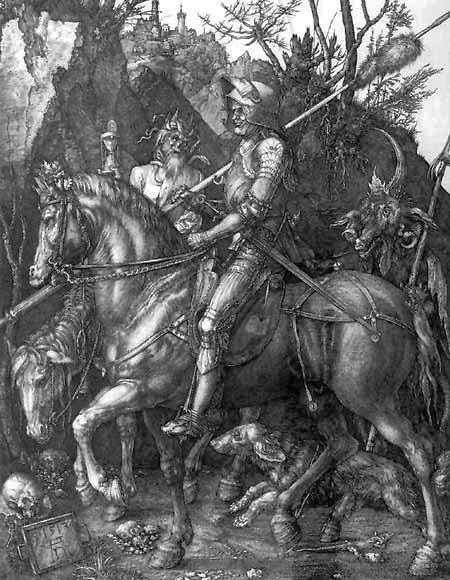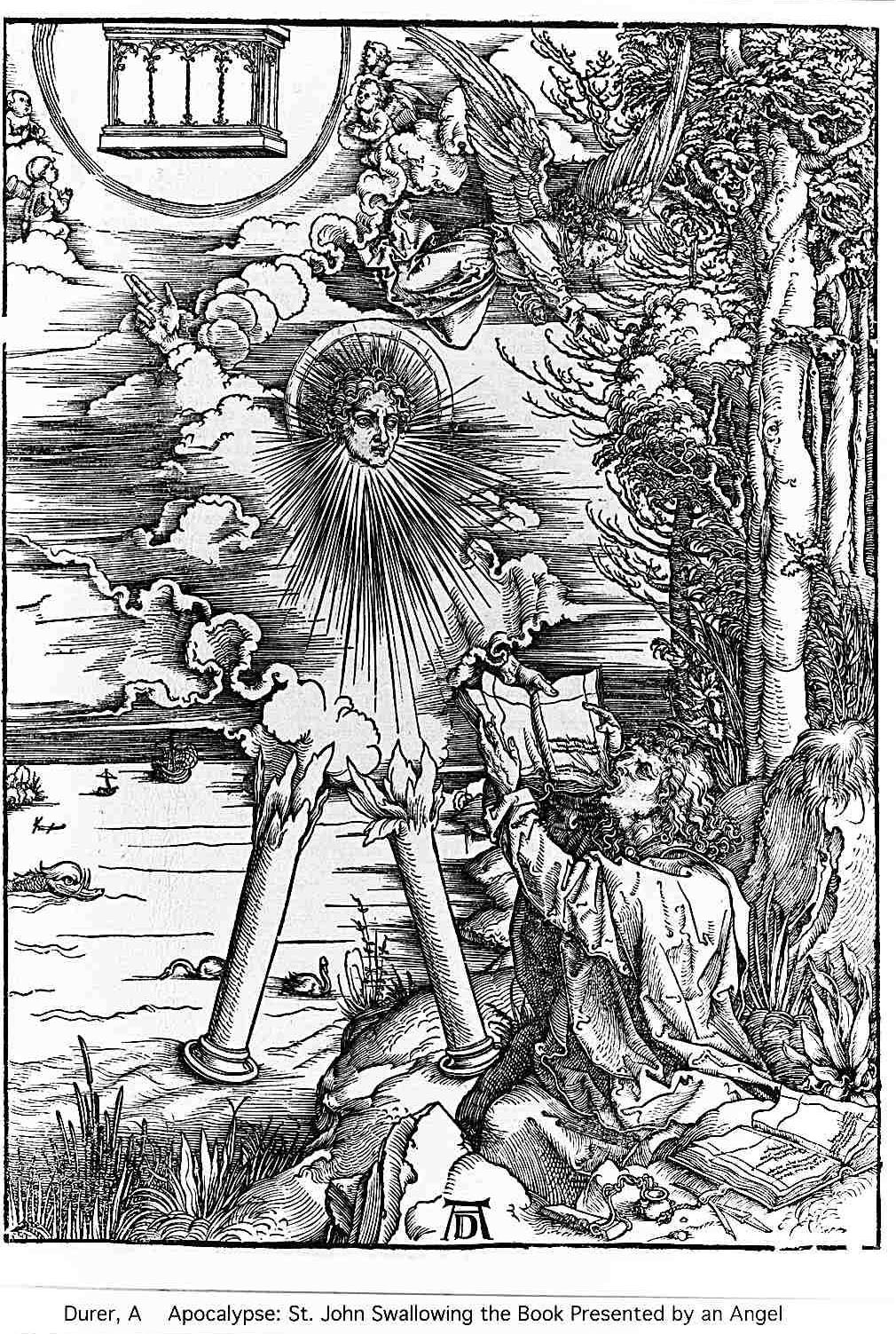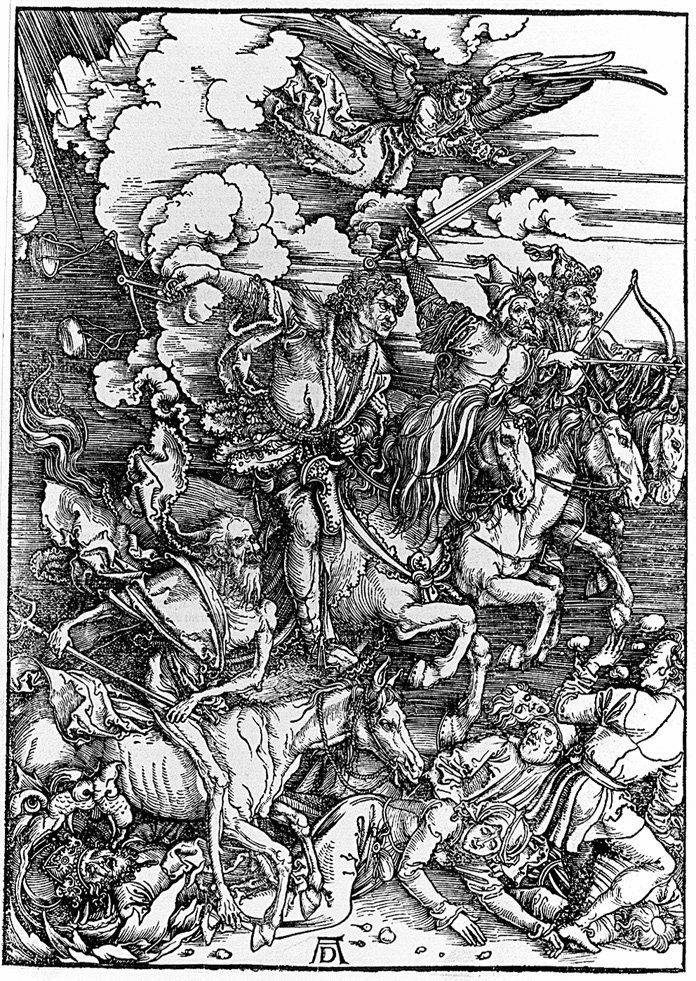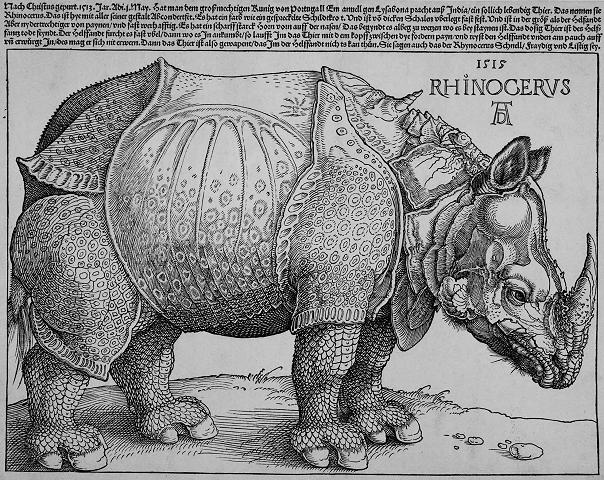Albrecht Dürer
Timeline: Northern Renaissance
I hold that the perfection of form and beauty is contained in the sum of all men.
-- Dürer, Four Books on Human Proportions, 1528
Dürer, Albrecht (b. May 21, 1471, Imperial Free City of Nürnberg [Germany]--d. April 6, 1528, Nürnberg), German painter, printmaker, draughtsman and art theorist, generally regarded as the greatest German Renaissance artist. His vast body of work includes altarpieces and religious works, numerous portraits and self-portraits, and copper engravings. His woodcuts, such as the Apocalypse series (1498), retain a more Gothic flavour than the rest of his work.
Born in Nürnberg as the third son of the Hungarian goldsmith Albrecht Dürer. Began as an apprentice to his father in 1485, but his earliest known work, one of his many self portraits, was made in 1484. Died in Nürnberg in 1528.
During1513 and 1514 Dürer created the greatest of his copperplate engravings: the Knight, St. Jerome in His Study, and Melencolia I--all of approximately the same size, about 24.5 by 19.1 cm (9.5 by 7.5 inches). The extensive, complex, and often contradictory literature concerning these three engravings deals largely with their enigmatic, allusive, iconographic details. Although repeatedly contested, it probably must be accepted that the engravings were intended to be interpreted together. There is general agreement, however, that Dürer, in these three master engravings, wished to raise his artistic intensity to the highest level, which he succeeded in doing. Finished form and richness of conception and mood merge into a whole of classical perfection.
환상적이고 환영적인 세계를 그리는 거장
Self-Portraits
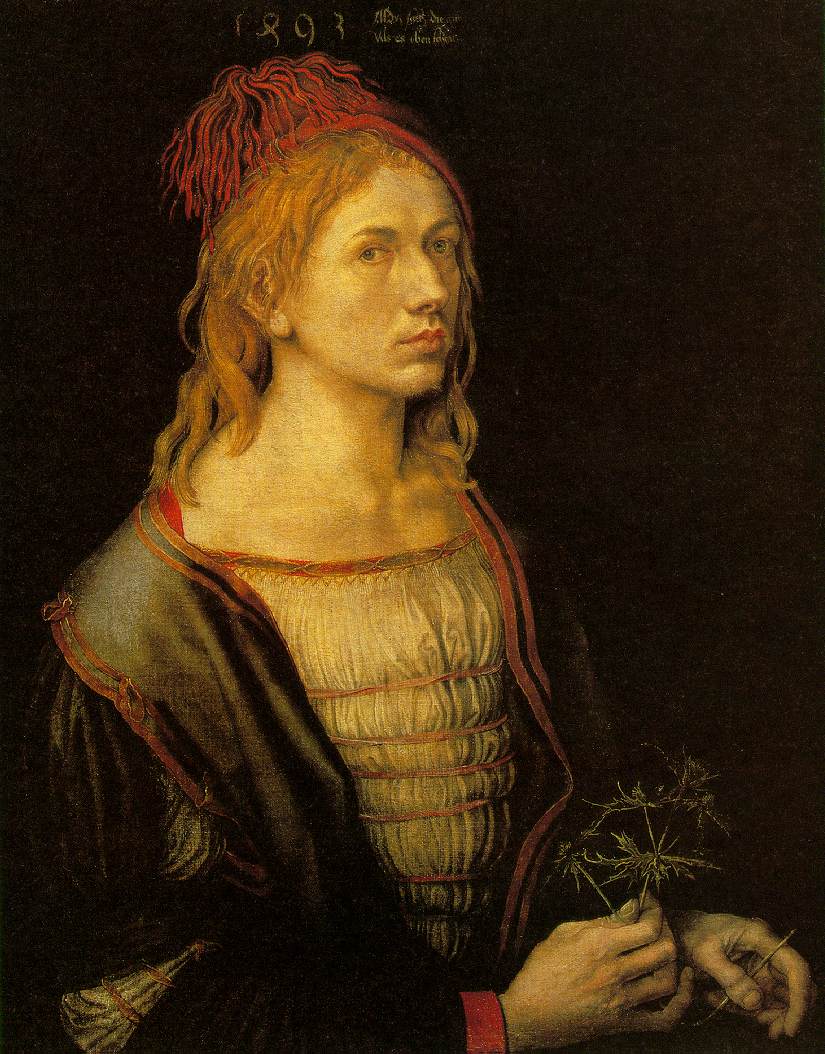
1493 (140 Kb); Oil on linen, transferred from vellum, 57 x 45 cm; Musee du Louvre, Paris
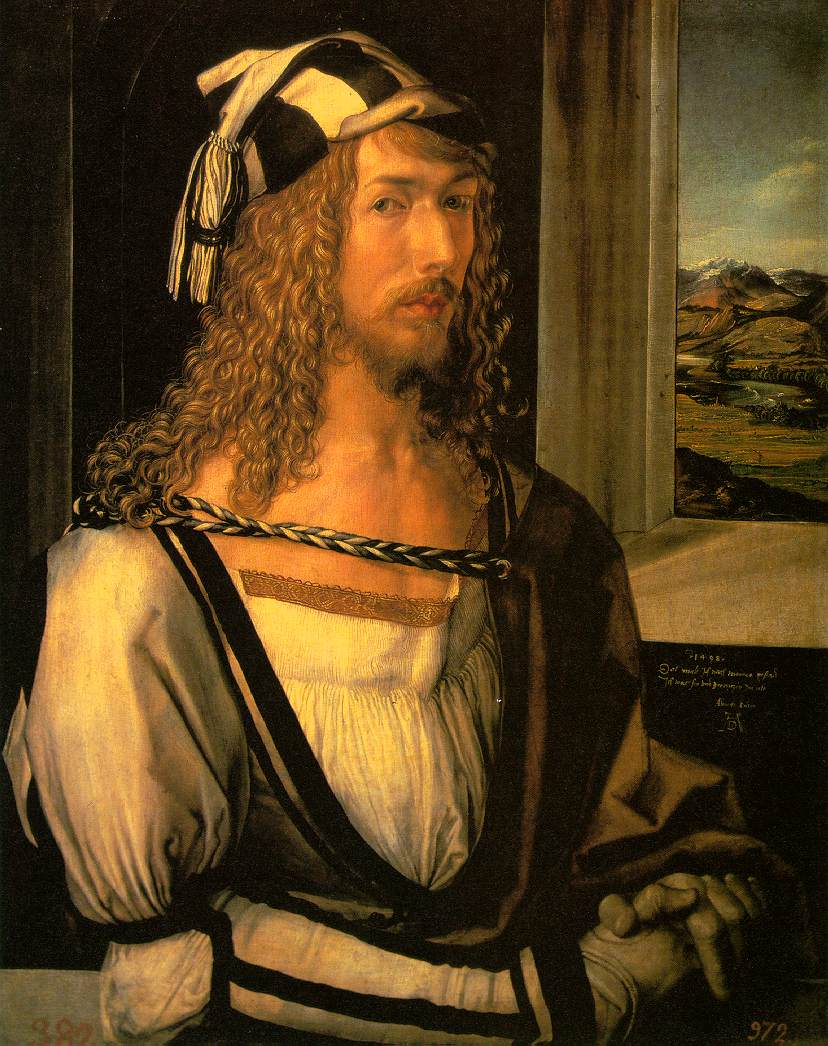
1498 (140 Kb); Oil on panel, 52 x 41 cm; Museo Nacional del Prado, Madrid
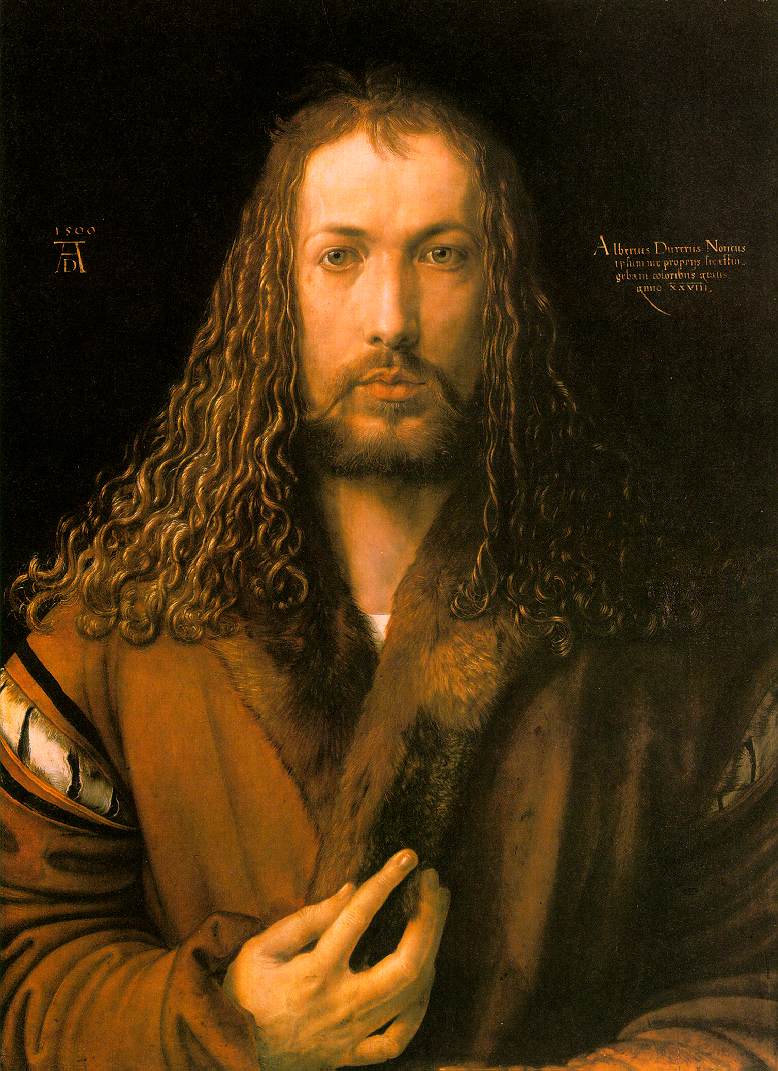
1500 (120 Kb); Oil on panel, 67 x 49 cm (26 1/4" x 19 1/4"); Alte Pinakothek, Munich
자신감 넘치는 시선. 거울속에 비친 자신의 모습을 관찰하면서 캔버스에 옮겨 그리는 방식.
Engravings
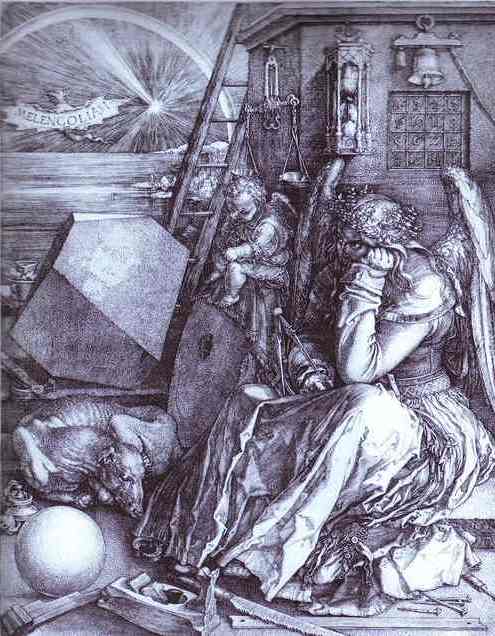
Melencolia I (La Melancolie)
1514 (80 Kb); Gravure sur cuivre, 24 x 19cm
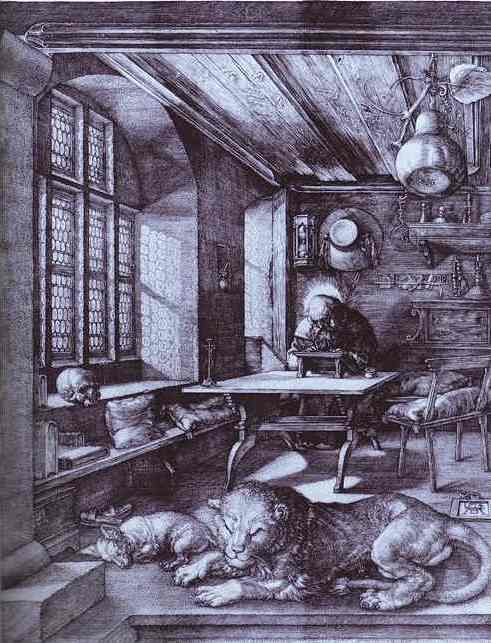
1514 (200 Kb); Engraving
(Albrecht Durer, 1496-98)
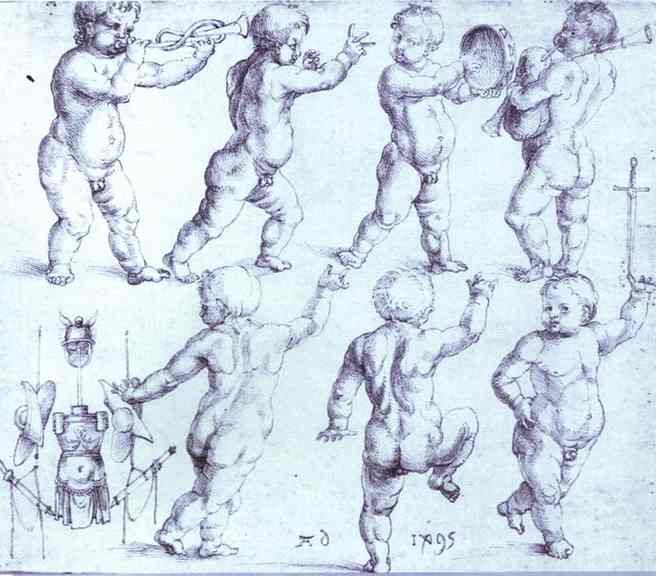
Rhinoceros
woodcut, 1515
From the exhibition Albrecht Dürer and his Legacy
British Museum, London
December 5, 2002 through March 23, 2003
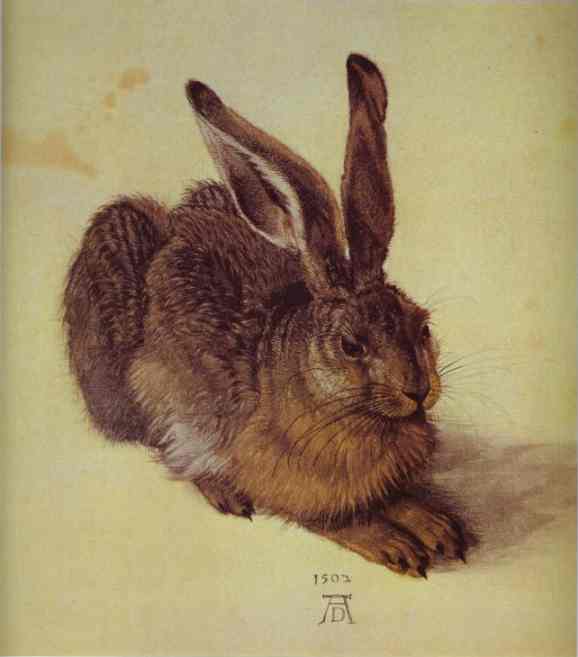
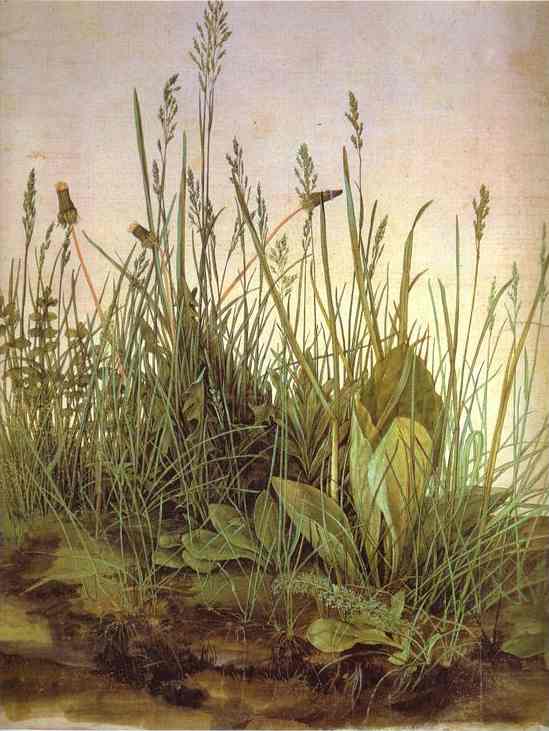
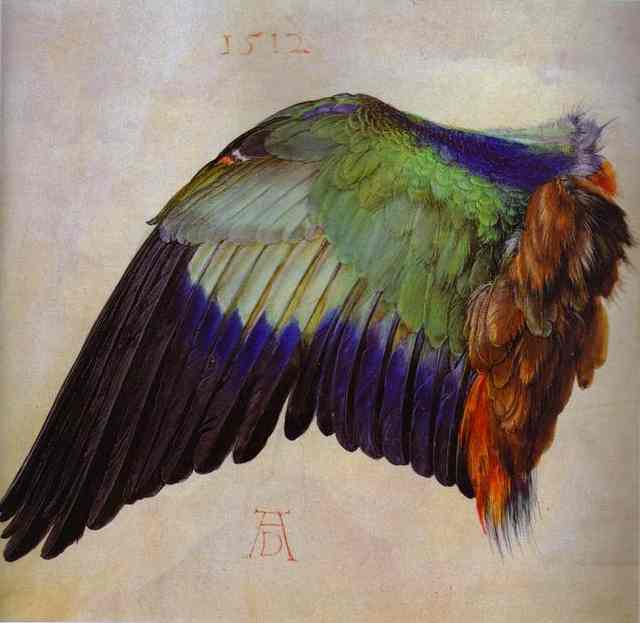
파랑새의 날개. 자연을 그대로 관찰하는 법을 알고 표현.
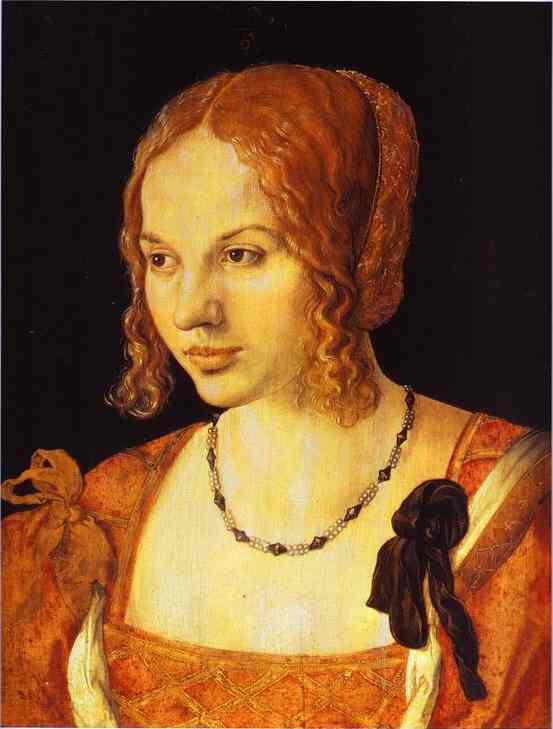
1505 (110 Kb); Oil on panel, 33 x 25 cm; Kunsthistorisches Museum, Vienna
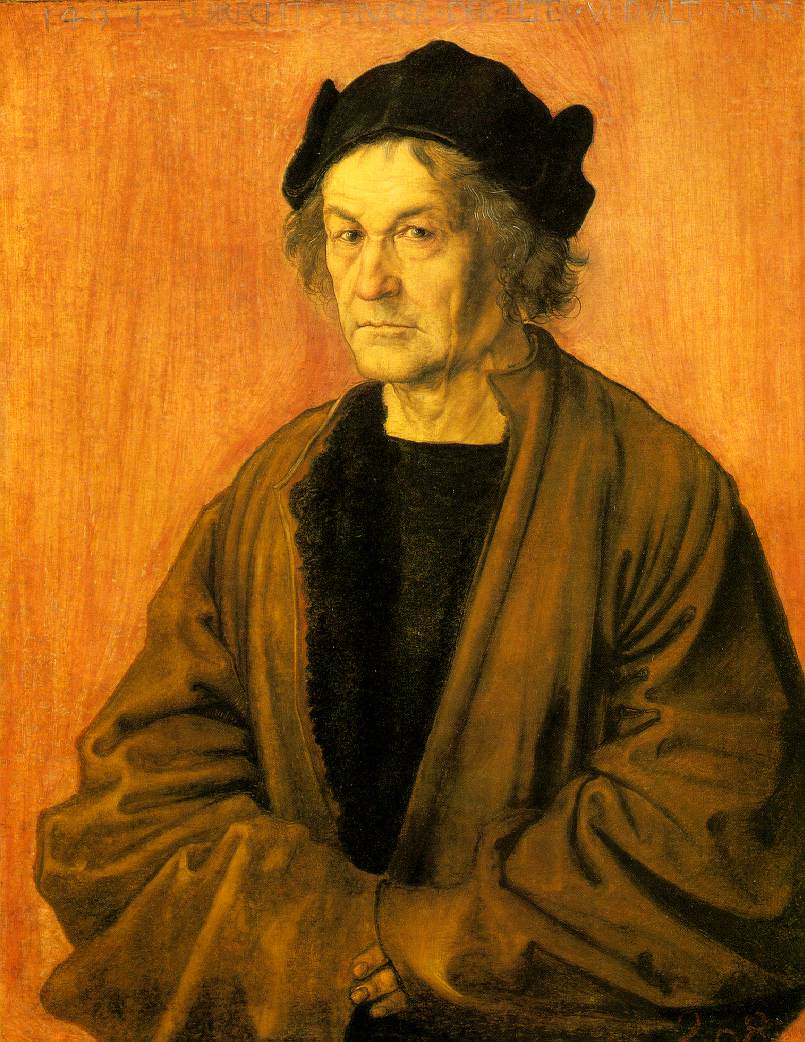
1497 (130 Kb); Oil on panel, 51 x 40 cm; National Gallery, London
'History of Arts > Renaissance' 카테고리의 다른 글
| 북유럽 르네상스-Hieronymus Bosch(고딕) (1) | 2020.05.18 |
|---|---|
| Titian (0) | 2020.05.18 |
| 르네상스 초기-얀 반 아이크 (0) | 2020.05.11 |
| 르네상스전성기: Leonardo DA VINCI (0) | 2020.05.11 |
| 르네상스전성기: Michelangelo di Lodovico Buonarroti Simoni (2) | 2020.05.11 |
